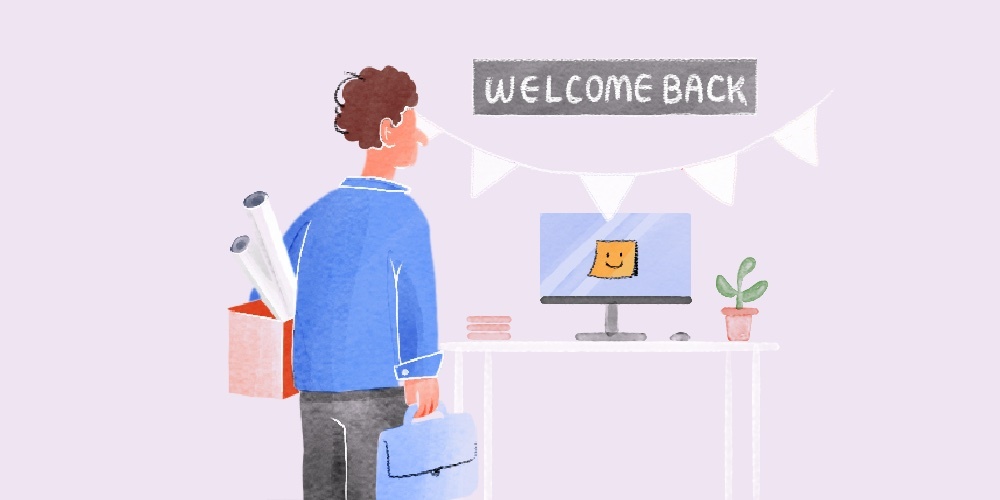How RTO FOMO has finally set in for younger workers

Office attendance is up significantly since about a year ago, with most workers now back a couple days a week in hybrid arrangements. But some people are still working entirely remotely — and they’re feeling left out.
RTO FOMO — aka return to office fear of missing out — is now a thing, especially among younger workers. With many of their peers back working in person, they’re realizing just how much they might be missing out on by continuing to work from home.
It’s true they stand to benefit arguably more than any other age group by spending more time working in offices. As early professionals, physically showing up helps build more connections, increases visibility and brings more opportunities to learn from others and grow into new roles. And many started their careers during the pandemic and age of remote work, limiting those interactions. Office accommodations, like nicer seating and desks, and free food and drinks, are another big draw, according to that report. More clearly defined boundaries between work and life are another advantage.
Leah Farmer, a certified life and leadership coach focusing on tech professionals, is seeing this among clients in their 20s. A recent 26 year-old female client told Farmer that “on one hand, she loved working remotely, but she feels like she’s missing opportunities at work for visibility, like being seen for her work, and missing those kinds of moments that just happen off the cuff in the office,” she said.
A 24-year old male client expressed he felt he was “missing opportunities, being overlooked and feeling sort of unintentionally disadvantaged,” she said. “He doesn’t feel like his boss is trying to create a disadvantage, but he’s just not having the same relationship with his boss as his colleagues that are in the city and come in all the time.”
Both these junior staffers are now in hybrid arrangements and taking intentional steps to go to the office more often, she said. The first client was recently put on a major project, and partially credits landing the assignment to her spending more time working in-person, she said.
Gen Z is in a unique position to take advantage of returning to more in-person work. Many haven’t yet started families, allowing them to relocate for on-site roles and show up in-person without worrying about caretaking responsibilities when compared to older generations.
Ultimately, almost half of Gen Z workers said working in an office best supports their quality of life, compared to about 30% of millennials, and about 16% of Gen X and Baby Boomers, according to a survey from consulting firm Big Chalk, including responses from about 1,000 US workers.
Another survey from Bright Network, a platform in the U.K. which connects students and graduates with career opportunities, found over 90% of students want to work in the office at least two days a week, and more than half want to work in the office four to five days a week. Top factors drawing them to in-person work include more opportunities to learn from others, build professional networks and engage in social activities, that survey found.
Ultimately, they’re eager to socialize and be perceived, said Barbara Palmer, a workplace leadership consultant and founder of Broad Perspective Consulting.
“You’re new and you haven’t built up personal equity with folks. People don’t know what your brand is. They don’t know what your work style is. They haven’t earned trust with you. So are you missing out on opportunities by not being in the literal room where you can do that,” Palmer said.
“Oftentimes why they’re on the team is to offer insights generationally or based on their experience or education. So I think the whole team benefits when they have a chance to be in person,” Palmer added.
Workplace experts say it’s important to note that Gen Z still wants flexibility — and to not be in the office every single day. Hybrid arrangements allow that, though companies do have varying levels of flexibility in their policies. And they’re still working out kinks, particularly those around varying requirements based on specific team structures and needs. Among companies in hybrid work arrangements, only 8% mandate staff work in person on specific days of the week, according to hybrid platform Scoop Technologies latest Q2 Flex report.
“Sometimes a crucial or important discussion is had in the office that isn’t relayed to employees working remotely, and it can stall productivity or leave people feeling out of the loop which can reinforce that fear of missing out,” said Sophie O’Brien, founder of Pollen Careers, an entry-level recruitment firm.

